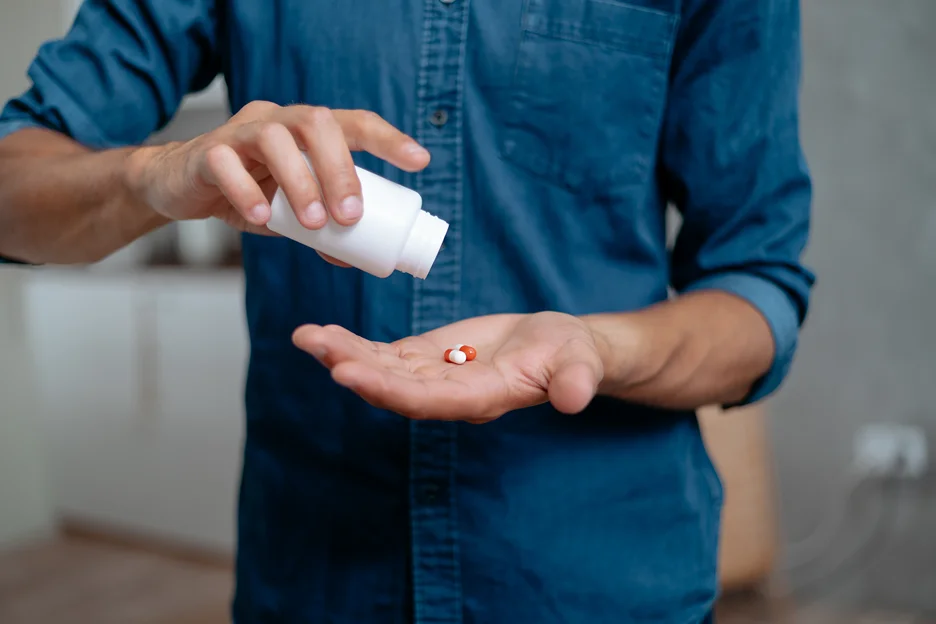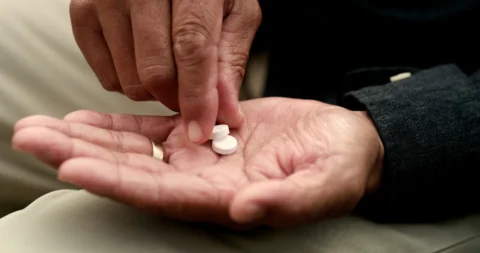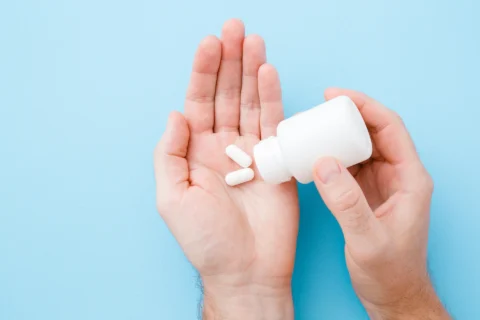Clomiphene citrate, commonly known by the brand name Clomid, has become a popular treatment option for men struggling with low testosterone and infertility issues. But like any medication, Clomid does come with potential side effects that men should be aware of.
What is Clomiphene and How Does It Work in Men?
Clomiphene is a selective estrogen receptor modulator (SERM) that works by blocking estrogen receptors in the hypothalamus, resulting in increased secretion of follicle stimulating hormone (FSH) and luteinizing hormone (LH) from the pituitary gland. This boost in FSH and LH signals the testicles to produce more testosterone and sperm.
While Clomid is FDA-approved for treating infertility in women, it is often prescribed off-label to men as well. It can help raise testosterone levels in men with hypogonadism and improve sperm production in those struggling with infertility.
What are the Common Side Effects of Taking Clomiphene?

Most studies have found Clomid to be relatively safe with mild and temporary side effects. According to one review, around 5-7% of men taking Clomid will experience side effects. Some of the most common side effects include:
Hot Flashes
Hot flashes are a common side effect of Clomid in men. They can cause sweating, flushing, and a rapid heart rate. These may range from mild and occasional to more severe. Taking Clomid before bedtime may help reduce the occurrence of hot flashes.
Vision Changes
Some men report visual side effects, including blurred vision, floaters, or photophobia (sensitivity to light) when taking Clomid. These vision changes are usually mild and reversible once the medication is stopped. However, in rare cases, permanent vision changes can occur. It’s important to contact your doctor if you experience any vision changes while taking Clomid.
Headaches
Headaches are another reported side effect for men using Clomid. These are generally mild, tension-type headaches. Dehydration can contribute to headaches caused by Clomid, so staying well-hydrated is recommended.
Mood Changes
Clomid may cause mood changes in some men, such as depression, irritability, anxiety, or emotional sensitivity. The extent of these neuropsychiatric side effects varies. If mood changes significantly impact your quality of life, it’s important to notify your doctor.
Gynecomastia
Gynecomastia, or breast enlargement and tenderness, is an uncommon side effect in men taking Clomid. Adjusting the dosage may help reverse this side effect in some cases.
While most side effects of Clomid are mild, monitoring for any unusual symptoms and reporting them to your healthcare provider is important for safe use.
Less Common But More Serious Side Effects
There are some rarer but more serious side effects associated with Clomid treatment in men:
- Liver toxicity: Elevated liver enzymes have been reported in a small number of men on Clomid. Symptoms may include nausea, fatigue, and yellowing of the skin or eyes. Regular blood work can help detect liver dysfunction.
- Tumor growth: In very rare cases, Clomid may promote the growth of benign pituitary tumors. Headaches, vision changes, nausea, and dizziness can be signs of a pituitary tumor.
- Thromboembolism: There is a small risk of blood clots (thromboembolism) while taking Clomid. Seek emergency care if you experience symptoms like chest pain, trouble breathing, leg pain or swelling, slurred speech, or weakness on one side of the body.
Any side effects that are severe, persistent, or worrisome should be promptly reported to your healthcare team. They can advise you on adjusting your dosage or trying a different treatment option if needed.
Monitoring Treatment and Minimizing Side Effects

Careful monitoring and management by a knowledgeable healthcare provider is key to minimizing Clomid side effects. Here are some tips:
- Start with the lowest effective dose, usually 25-50 mg per day. Only increase the dosage if needed.
- Get regular bloodwork to monitor hormone levels, liver enzymes, cholesterol, etc.
- Time dosages appropriately – take Clomid before bedtime to reduce hot flashes.
- Stay well hydrated, eat healthy, exercise, and manage stress levels.
- Report any vision changes, severe headaches, mood changes, or other unusual symptoms immediately.
- Take a break from treatment periodically, such as taking Clomid for 3 months then off for 1 month.
Discontinuing Clomid will typically resolve most side effects. However, in very rare cases vision changes may persist even after stopping the medication. This is why regular eye exams are advisable during treatment.
Using Clomid for Male Fertility Treatment
While not FDA approved for male infertility, Clomid is commonly used off-label to help men with low sperm counts and motility issues conceive.
Smaller studies have found Clomid can raise sperm counts in men with infertility. Results may take 3-6 months as sperm maturation takes approximately 74 days. Clomid may also improve pregnancy rates, but limited data is available.
However, Clomid does not help all cases of male infertility. Factors like age, duration of infertility, and the cause of low sperm count impact success rates. Clomid also does not treat structural issues like varicoceles or obstructed tubes.
As with hormone treatment, side effects are possible so monitoring and medical guidance is recommended. Always discuss benefits and risks with your urologist or reproductive endocrinologist.
How Does Clomid Compare to Other Treatments?
For men struggling with low testosterone (hypogonadism), Clomid offers a potentially reversible alternative to testosterone replacement therapy (TRT). Because Clomid stimulates natural testosterone production, it avoids side effects of TRT like testicular atrophy.
However, research on Clomid vs TRT shows mixed results in terms of efficacy in hypogonadal men. Some men may not respond well to Clomid therapy. TRT is also easier to administer in a single injection vs daily Clomid pills.
For infertility, Clomid is less expensive and invasive than procedures like testicular sperm extraction (TESE) or micro TESE. But for severely low sperm counts, direct surgical sperm retrieval may be needed vs medication alone.
Each treatment option has its own pros, cons, and success rates. Thorough evaluation and open discussion with a specialist are vital to determine the ideal treatment plan for each patient.
Conclusion: Using Clomid Responsibly for Optimal Outcomes

Clomid can be an effective treatment option for certain men struggling with low testosterone and infertility. However, side effects are possible even if uncommon for most men. Being informed of the risks and having proper monitoring/management is key to maximizing the benefits and minimizing adverse reactions.
Careful medical selection of appropriate patients, conservative dosing, and vigilant monitoring can help make Clomid a safe, reversible treatment option. But it’s not necessarily a magic cure-all for male hypogonadism or infertility. Realistic expectations are important.
Open communication with your doctor is vital when using Clomid or any hormone medication. Report any side effects promptly and schedule regular check-ups to assess treatment progress and watch for complications.
With responsible use under medical supervision, Clomid offers a valuable alternative to help restore testosterone levels and improve sperm production in men seeking treatment for low testosterone and certain forms of infertility. But the medication alone does not address all causes of male reproductive issues.
Comprehensive evaluation, lifestyle changes like diet/exercise, and openness to exploring various treatment options is key to achieving optimal hormonal health and fertility outcomes.







